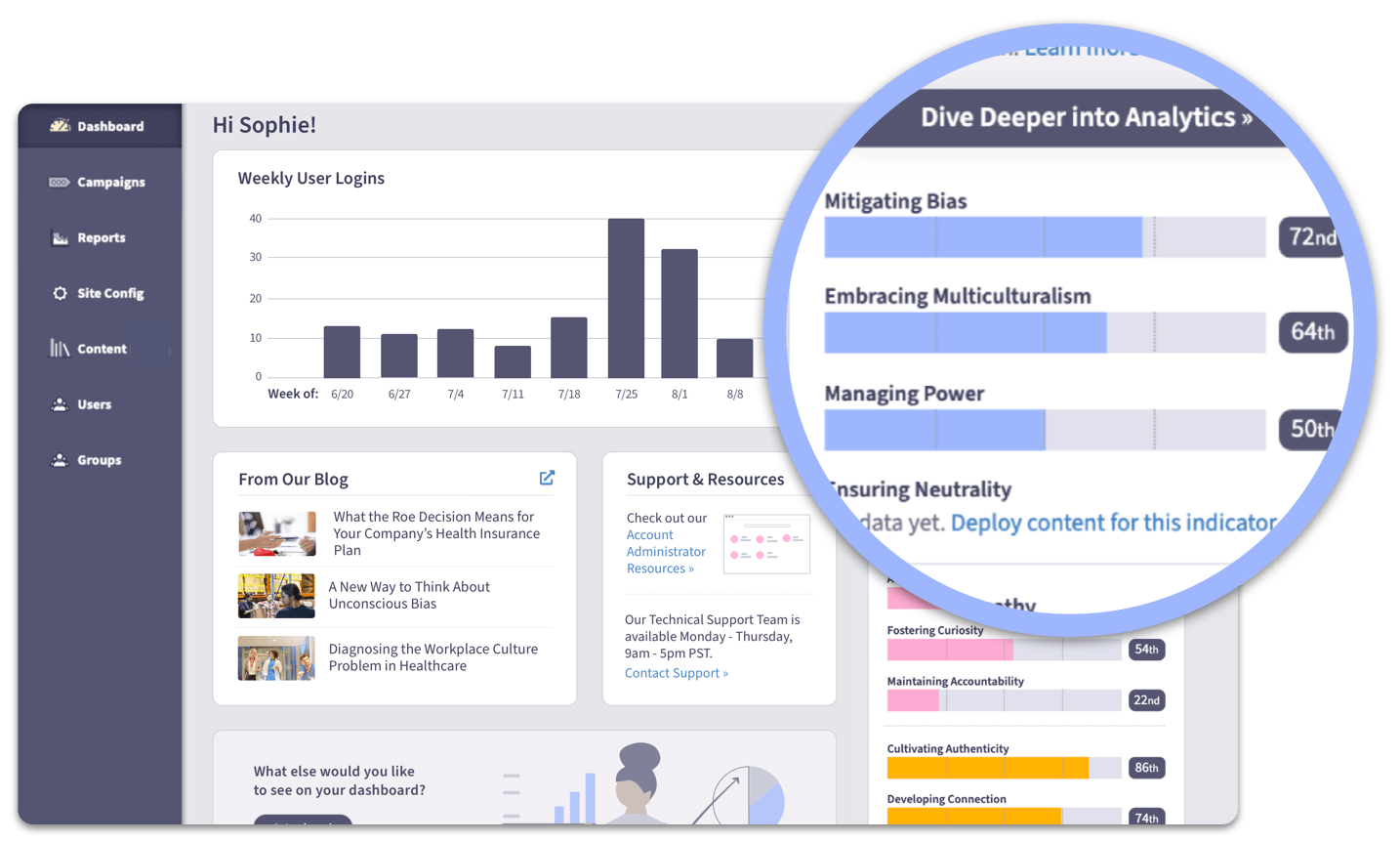
Every social outcome is preceded by situational dynamics that we can use to assess and benchmark the culture of any workplace. Emtrain has developed a unique framework for identifying and measuring the key factors that impact organizational culture.

A framework designed to empower organizations with workforce analytics. Our unique employee sentiment surveys provide insights into workplace dynamics such as bias, respect, inclusion, and ethics.
is designed to build employee skills and behavior in the areas of Respect, Inclusion, Belonging and Ethics.


The ability to recognize and address actions and beliefs that create an unreasoned or unjustified preference for or against someone or something.
Encouraging interaction between in-groups and out-groups helps break down unproductive barriers and soothe hostility between people.
The ability to use the authority and respect given to individuals based primarily on their position within the workplace to enable equitable and productive outcomes.
Ensuring a fair distribution of opportunities and resources within work-related systems or processes. This includes all institutional processes such as in-hiring, performance management, compensation, training, mentoring, etc.

Behaviors by which an individual actively increases their knowledge and understanding of others.
Understanding, experiencing, or taking actions based upon others’ emotions.
The practice of 1)using one’s own resources to create opportunity for those likely to experience bias or discrimination against them, and 2) being relied upon by a community to do so.
Understanding and leveraging the dynamics in an interconnected set of elements to promote positive change.

A person’s ability to engage and manage their own needs within the workplace in ways that enhance their positivity, performance, and wellbeing.
Identifying and understanding one’s personal values. Reconciling one’s own values with those of others. Managing the risk associated with loss of reputation and esteem while expressing and pursuing one’s genuine thoughts, feelings, and aspirations.
Enabling full representation and participation by people with diverse abilities, interests, and demographic characteristics, and perspectives in team dynamics. This includes managing change and conflict productively.
Words and actions taken by leaders that invite key stakeholder groups to participate in co-creating decision-making processes and making decisions.

The ability to engage in moral reasoning, to monitor one’s behaviors, judge oneself according to a standard of ethical conduct, and take actions aligned with self-judgement.
Being truthful, accurate and complete; aligning personal thoughts with social conduct; not purposefully omitting information to protect one’s self interest.
Building confidence that people can rely upon each other to meet shared goals and responsibilities in positive and engaging ways; enabling psychological safety in team dynamics.
Creating a sense of collective responsibility for individual and group outcomes through the use of checks and balances.